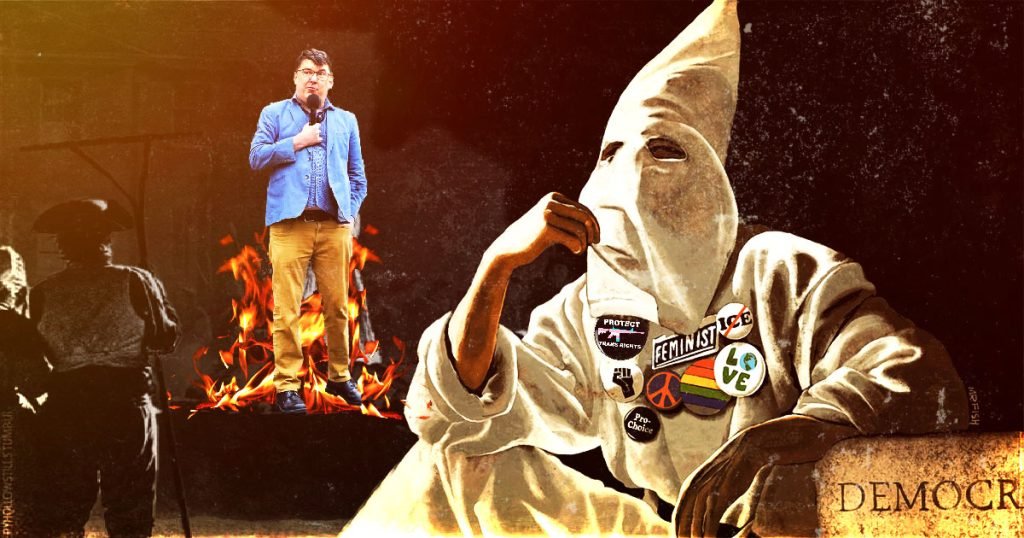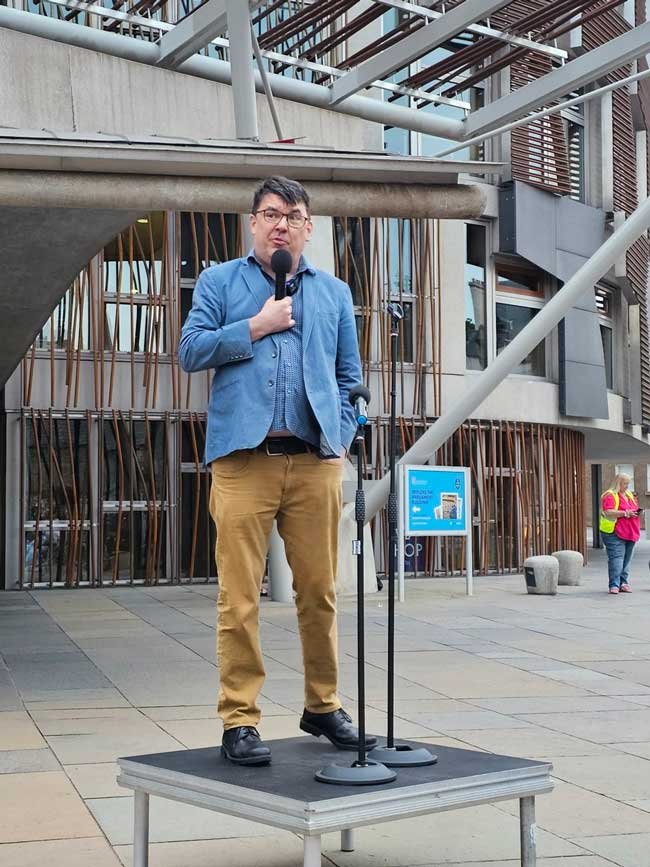After the arrest of Father Ted creator Graham Linehan, Britain’s largest police force finally admits it should not be policing speech…
The Metropolitan Police has announced it will no longer investigate non-crime hate incidents (NCHIs), saying the change will allow officers to “focus on matters that meet the threshold for criminal investigations.”
The announcement followed confirmation that the Met has dropped its case against Father Ted creator Graham Linehan, who was arrested at Heathrow Airport on 1 September on suspicion of inciting violence over posts on X (formerly Twitter).
“This decision means that no charges will be brought against Graham Linehan in relation to this allegation,” a detective confirmed in an email to the comedian on Monday.
The Arrest That Sparked a National Debate
Linehan’s arrest by five officers as he arrived from the US provoked outrage from civil liberties groups, politicians, and members of the public who saw it as an attack on free speech.
Following the arrest, Westminster Magistrates’ Court ordered that all of Linehan’s bail conditions be dropped after the Free Speech Union (FSU) successfully argued they were too vague. District Judge Snow agreed, ruling that the restrictions were “unlawful and immediately lifted.”
In a statement, Linehan and the FSU said they now intend to sue the Metropolitan Police for wrongful arrest and for violating his right to free expression.
Met Steps Back From Policing Speech

In an unusual public statement, the Met acknowledged the growing concern around its approach to so-called “hate incidents.”
“The Commissioner has been clear he doesn’t believe officers should be policing toxic culture-war debates,” a spokesperson said. “The current laws on inciting violence online leave them in an impossible position.”
The Met’s new policy, they added, will “provide clearer direction for officers, reduce ambiguity, and enable them to focus on matters that meet the criminal threshold.”
Non-crime hate incidents are recorded when an act is perceived to be motivated by hostility or prejudice towards a protected group, even when no crime has been committed. These records have often appeared on individuals’ background checks, raising serious concerns about privacy, free expression, and due process.
The recording of NCHIs began after the Stephen Lawrence Inquiry (1999) recommended greater vigilance against hate-related behaviour. However, critics have long warned that the policy has been misused to monitor lawful speech and political opinions.
What Sparked Linehan’s Arrest

Linehan said his arrest stemmed from three posts on X in April relating to the issue of biological men entering female-only spaces.
In one post, he wrote:
“If a trans-identified male is in a female-only space, he is committing a violent, abusive act. Make a scene, call the cops, and if all else fails, punch him in the balls.”
He later explained that it was “a serious point made with a joke” — an exaggerated expression of frustration rather than a literal call to violence.
His other posts included a photograph of a protest captioned “a photo you can smell,” and a separate post criticising “misogynists and homophobes.”
Following his arrest, Linehan said he was taken to hospital after his blood pressure spiked during questioning. He was later released on bail pending investigation.
Political Fallout

At the time, Met Commissioner Sir Mark Rowley defended the officers but admitted that such cases raised “serious concerns” about free speech. He urged the government to clarify the law, while Prime Minister Keir Starmer stated that police should “focus on the most serious issues.”
Not everyone agreed. Green Party leader Zack Polanski called Linehan’s posts “totally unacceptable,” saying the arrest seemed “proportionate.” Meanwhile, Shami Chakrabarti, Labour peer and former director of Liberty, struck a more balanced note:
“The public order statute book and speech offences do need an overarching review,” she said. “But inciting violence must always remain a criminal offence.”
A Turning Point for Free Speech in Britain?
The Linehan case, and the backlash that followed, appears to have been the tipping point that forced the Met to review its handling of speech-related incidents.
For years, campaigners have warned that the recording of non-crime hate incidents allows police to act as political arbiters rather than impartial enforcers of the law. The new policy signals at least a partial retreat from that role.
Linehan still faces unrelated charges of harassment and criminal damage, which he denies. That case has been adjourned until 29 October.
But the larger question now looms: if police are no longer to be the referees of speech, who will be?
When the line between crime and opinion blurs, the law stops defending freedom and starts defending power. The Met’s climbdown is late, but it’s a start.
Support Independent Journalism Today
Our unwavering dedication is to provide you with unbiased news, diverse perspectives, and insightful opinions. We're on a mission to ensure that those in positions of power are held accountable for their actions, but we can't do it alone. Labour Heartlands is primarily funded by me, Paul Knaggs, and by the generous contributions of readers like you. Your donations keep us going and help us uphold the principles of independent journalism. Join us in our quest for truth, transparency, and accountability – donate today and be a part of our mission!
Like everyone else, we're facing challenges, and we need your help to stay online and continue providing crucial journalism. Every contribution, no matter how small, goes a long way in helping us thrive. By becoming one of our donors, you become a vital part of our mission to uncover the truth and uphold the values of democracy.
While we maintain our independence from political affiliations, we stand united against corruption, injustice, and the erosion of free speech, truth, and democracy. We believe in the power of accurate information in a democracy, and we consider facts non-negotiable.
Your support, no matter the amount, can make a significant impact. Together, we can make a difference and continue our journey toward a more informed and just society.
Thank you for supporting Labour Heartlands









